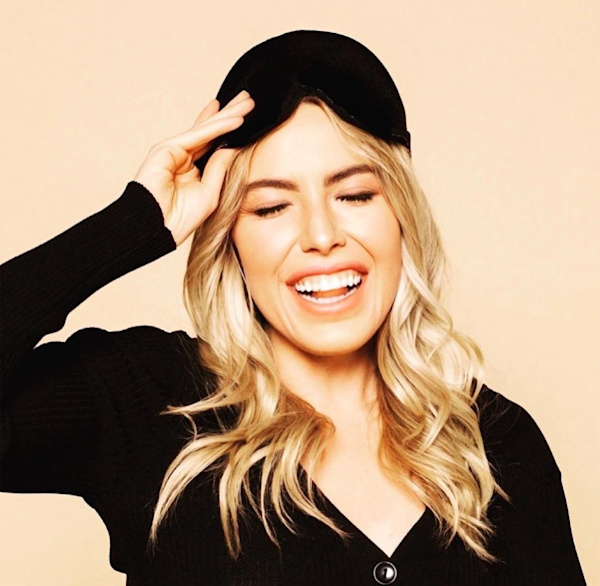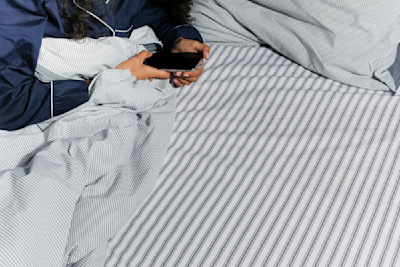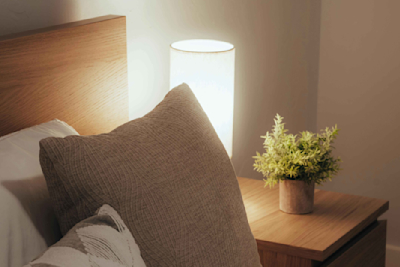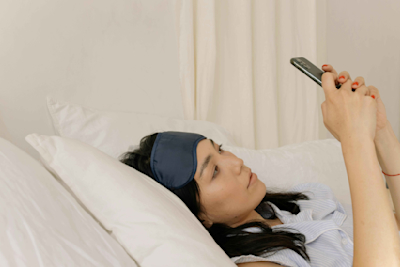
Optimizing Sleep: An Exclusive Interview with Mollie Eastman
The transformative power of mastering sleep
In a world that never sleeps, where the glow of screens and the buzz of notifications create a backdrop to our lives, finding true rest seems more like a luxury than a necessity.
Yet, in the heart of this sleepless age, Mollie Eastman, the visionary behind Sleep Is A Skill, emerges as a beacon of hope.
Through her groundbreaking work and the innovative Sleep Is A Skill Podcast, Mollie has pioneered a movement that redefines the very essence of sleep, transforming it from a passive state to an active skill that can be honed and mastered.
Mollie Eastman is the creator of Sleep Is A Skill, and the host of The Sleep Is A Skill Podcast.
In this exclusive interview, we dig deep into the mind of Mollie Eastman to uncover the secrets of achieving the kind of restorative sleep that seems elusive to so many.
As we navigate through her insights and discoveries, we also shine a light on how Mudita, with its commitment to enhancing the well-being of individuals through products like Mudita Bell and Mudita Harmony, aligns perfectly with the mission of promoting healthy sleep hygiene.
Mudita Harmony 2 and Mudita Bell 2
Join us on this enlightening journey as we explore the intricate dance of darkness and light, quiet and sound, rest and activity, in the quest for the ultimate night's sleep.
This conversation is more than an interview; it's a roadmap to reclaiming the night and, with it, our health and vitality.
Mudita Harmony2
1. What are the most common sleep disorders today, and what are their primary causes?
There are many sleep disorders, but insomnia, sleep apnea, restless legs syndrome (RLS), and narcolepsy are some prevalent examples. Insomnia often results from stress, anxiety, and disruptions to the circadian rhythm, highlighting the importance of light/dark exposure and consistent sleep/wake times. Sleep apnea is linked to anatomical differences along with weight and hormonal fluctuations, but its severity can also be influenced by circadian misalignments. RLS and narcolepsy causes are layered but appear to have genetic and neurological underpinnings and are also affected by disruptions in sleep patterns and timing. Emphasizing the role of circadian rhythm entrainment, maintaining a natural light/dark cycle, and structured daily routines can mitigate the impacts of these disorders.
2. How much sleep do we need depending on age? What factors does it depend on?
Sleep needs vary by age: Newborns (0-3 months) require 14-17 hours, infants (4-11 months) need 12-15 hours, toddlers (1-2 years) should get 11-14 hours, preschoolers (3-5 years) need 10-13 hours, school-age children (6-13 years) require 9-11 hours, teenagers (14-17 years) should have 8-10 hours, young adults (18-25) and adults (26-64) need 7-9 hours, and older adults (65+) should aim for 7-8 hours. Factors influencing these needs include developmental needs, health, lifestyle, and genetics. Timing of sleep, aligned with our circadian rhythms, is crucial for maximizing sleep benefits. These needs are influenced by developmental stages, health status, lifestyle habits, and genetic factors. Critical to this discussion is the role of chronobiology, which suggests that the timing of sleep, in accordance with our internal biological clocks, is just as important a factor to consider alongside duration. Proper light exposure, meal timing, and engaging in activities synchronized with our circadian rhythms enhance sleep quality across all age groups.
3. How does the concept of sleep hygiene contribute to overall sleep quality, and what are the key components of good sleep hygiene?
Sleep hygiene is crucial for circadian rhythm entertainment, emphasizing consistent sleep schedules, exposure to natural light during the day, dim and dark environments before bedtime, and avoiding heavy meals close to sleep time. These practices, alongside reducing stimulant & alcohol consumption and creating a restful bedroom environment, align our internal clocks with the external environment, promoting restorative sleep and optimizing our biological functions.
4. How should we approach building our sleeping habits to improve sleep quality?
Improving sleep quality involves building habits that support circadian rhythm health, such as maintaining a consistent sleep-wake cycle, seeking morning sunlight exposure, limiting light pollution at night, and timing meals to support natural energy levels throughout the day. By structuring our daily routines around the natural light/dark cycle and understanding the principles of chronobiology, we can enhance sleep depth, duration, and overall health.
5. What are the implications of using electronic devices before bedtime on sleep architecture and circadian rhythms?
The bright & blue light emitted not only by electronic devices but, even more notably, our lighting in our environment can disrupt circadian rhythms by suppressing melatonin production, leading to difficulties in falling asleep and reduced sleep quality. This interference with the natural light/dark cycle underscores the importance of minimizing screen time in the evening and creating a dark, tech-free environment before bedtime to support our internal biological clocks.
6. How should we use tech devices to ensure that our sleep quality is not getting affected?
To mitigate the impact of tech devices on sleep, set the color filter settings on your iPhone to red (hidden settings feature), and on Android, use the Twilight app to reduce blue light exposure and set limits on usage before bedtime. Embracing technology that tracks sleep patterns can be beneficial, but it's crucial to prioritize a tech-free & dimly lit bedroom environment to maintain circadian rhythm integrity and ensure high-quality sleep.
7. How do environmental factors like light, noise, and temperature influence sleep, and what are the optimal conditions for a restful night?
Environmental factors play a significant role in circadian rhythm health and sleep quality. Exposure to natural outdoor light during the day and darkness at night is essential for circadian entrainment, while minimizing noise and maintaining a cool bedroom temperature supports the body's natural sleep processes. Creating an environment that mirrors the natural progression from light to dark helps signal the body it's time to sleep, optimizing the sleep environment for restfulness. This also includes behaviors like meal-timing, thought-timing organization, and more.
8. What are innovative sleep technologies or therapies that show promise for the future of sleep health?
Emerging sleep technologies and therapies that align with circadian health principles include wearable devices that track light exposure and sleep patterns, smart lighting systems that adjust to support natural circadian rhythms and apps that provide personalized recommendations for sleep timing and environmental adjustments. These innovations, along with developments in chronotherapy and timed light exposure therapy, hold promise for enhancing sleep quality and overall health by harnessing the power of our internal biological clocks. Thankfully, many of the things that you can do for sleep are free or low-cost and largely involve behavioral & environmental changes…and an overall commitment to learning & honoring the skillset of sleep!
Final thoughts
Our journey through the science of sleep with Mollie Eastman reveals not just the complexity of sleep as a biological necessity, but also its profound impact on our overall well-being. From the dangers of sleep disorders to the transformative power of good sleep hygiene, Mollie's insights offer a compelling look at how we can all improve our lives one night at a time.
In an era where the quality of our rest is often compromised, her expertise and the innovative approach of Sleep Is A Skill provide a much-needed beacon of hope.
Mudita, in its mission to support a healthier, more mindful lifestyle, stands as a proud proponent of the principles shared by Mollie. Through thoughtful products like Mudita Bell and Mudita Harmony, designed to foster environments conducive to quality sleep, Mudita echoes the call for a return to natural rhythms and the embrace of technology that serves our well-being.
As we conclude this conversation, let’s carry forward the message that sleep is not just a period of inactivity, but a vital, active skill that we can all develop. In doing so, we not only enhance our own lives but also contribute to a healthier, happier world.
Remember, the journey to better sleep begins with a single step - whether it's adjusting our environment, our habits, or the tools we use, like Mudita's innovative products, to cultivate the perfect conditions for rest.
Let's make that commitment to our sleep, to ourselves, tonight.
Related stories

The Digital Detox Guide for Better Sleep
Struggling with poor sleep? Discover how a digital detox can improve sleep quality, support better sleep hygiene, and help you sleep better naturally.

How light temperature affects melatonin production
Let's explore how light temperature can impact your body's melatonin production & affect your sleep.

Digital Detox Resolutions: Break the Screen Cycle & Sleep Better
Improve your sleep in 2025 with Mudita & a digital detox. Unplug before bed, create a tech-free routine & enjoy restful nights with simple, mindful habits.
If you'd like to receive the best stories from our blog, keep up to date with our progress and get notified about our product releases and special discounts.